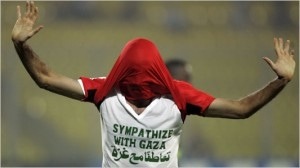 The Football Scholars Forum, an international online think tank, convened on November 14 to discuss Football in the Middle East. The conversation focused on a special issue of the academic journal Soccer and Society, edited by Alon Raab and Issam Khalidi. The group began by noting that while football has been a critical force in broader political and cultural developments in the region, there is little institutional support for studying the game in the Middle East.
The Football Scholars Forum, an international online think tank, convened on November 14 to discuss Football in the Middle East. The conversation focused on a special issue of the academic journal Soccer and Society, edited by Alon Raab and Issam Khalidi. The group began by noting that while football has been a critical force in broader political and cultural developments in the region, there is little institutional support for studying the game in the Middle East.
The ensuing 90-minute discussion demonstrated the value of scholarly collaboration and research on the game. The group explored a dizzying number of topics and territories, including football as a source of unity and hope and as a site of political and ideological conflict; the 2022 World Cup in Qatar; soccerpolitics in Turkey; sport and Islamism; Palestinian and Iraqi Kurdish women’s teams; and football films and poetry.
For a Storify Twitter timeline click here.
Download the mp3 of the session here.
Tag: Football Scholars Forum
In this video, Alex Galarza and I discuss digital fútbol scholarship at Michigan State University. The conversation ranges from Galarza’s doctoral dissertation entitled “Between Civic Association and Mass Consumption: The Soccer Clubs of Buenos Aires,” to the Football Scholars Forum, the online football think tank.
For more information about Galarza’s research click here.
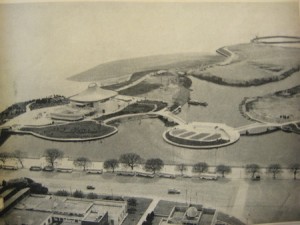 Alex Galarza, a PhD student in history at Michigan State University and co-founder of the Football Scholars Forum, has been awarded the João Havelange Research Scholarship. This prestigious award is administered jointly by FIFA and CIES (Centre International d’Etude du Sport), an independent research center created in 1995 by the governing body in collaboration with the University of Neuchâtel, and the City and State of Neuchatel, Switzerland.
Alex Galarza, a PhD student in history at Michigan State University and co-founder of the Football Scholars Forum, has been awarded the João Havelange Research Scholarship. This prestigious award is administered jointly by FIFA and CIES (Centre International d’Etude du Sport), an independent research center created in 1995 by the governing body in collaboration with the University of Neuchâtel, and the City and State of Neuchatel, Switzerland.
Galarza’s project is titled “Between Civic Association and Mass Consumption: The Soccer Clubs of Buenos Aires.” It explores how clubs developed as both centers of mass spectacle and sites of everyday urban sociability. Club members and officials used political connections to secure city space and public subsidies for stadiums and the overall success of their professional teams. While clubs became centers of patronage and spectacle, they were also non-profit civic associations central to social and cultural activities in the city. Clubs provided educational facilities, libraries, leisure space, and political forums for their members.
Galarza’s research examines the tensions within football clubs during the mid-twentieth century, an era when Argentine society entered a period of deep economic and political changes following the ouster of Juan Domingo Perón in 1955. Perón’s project aimed at developing a new kind of citizen and civic culture in which the popular classes would have a greater political voice and heightened access to new forms of mass consumption. Mass political participation and consumption remained critical and unresolved tensions during the democratic and military governments that followed. One powerful example of how soccer clubs gave shape and meaning to civic engagement, popular spectacle, and mass consumption is Boca Juniors’ Ciudad Deportiva (in photo above). This failed project was a mix between a stadium complex and amusement park, built over seven artificial islands on sixty hectares of land filled in the Rio de la Plata.
Click here to read a digital version of Galarza’s preliminary work on the fascinating history of the Ciudad Deportiva.
Check back with us for an interview with Galarza in the coming days.
The 90th Minute Trailer from Jun Stinson on Vimeo.
The Football Scholars Forum is holding its final session of the 2012 season on Wednesday, December 5, at 3:30pm EST, on Jun Stinson’s short film, The 90th Minute. The 20-minute documentary follows three members of FC Gold Pride, the 2010 Women’s Professional Soccer champions. The film sheds light on what it’s like to be a female pro player in the U.S. — a dream that has become more elusive after the demise of the WPS.
Why do Hope Solo, Alex Morgan, Megan Rapinoe, Abby Wambach and others struggle to play professionally in their country? Why have two pro women’s soccer leagues failed since the heady days of Mia Hamm, Brandi Chastain and the 1999 Women’s World Cup? What needs to happen for a new women’s league in the U.S. to be sustainable? How does the situation in the U.S. compare with international trends?
Jun Stinson recorded an interview with me ahead of the session in which I also asked a few questions on behalf of FSF members. To listen click here. Gwen Oxenham, former Duke and Santos player and one of the producers of the film Pelada will participate in what promises to be a terrific season finale!
For more information about this event please contact Alex Galarza: galarza1 [at] msu [dot] edu.
Update: On November 21, “U.S. Soccer president Sunil Gulati announced the launch of a women’s professional league which will start play in March.” Details here.
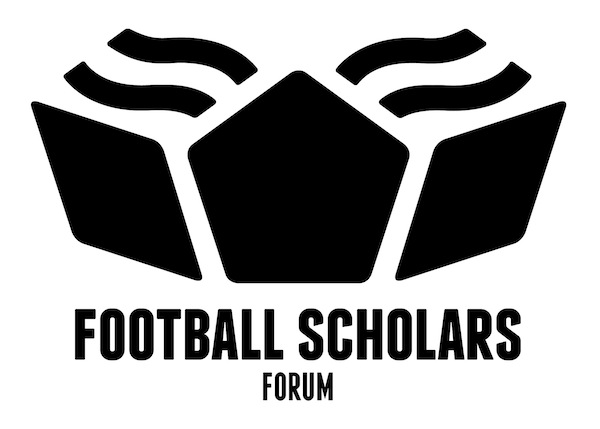
Professional soccer in the U.S.A. took center stage at the Football Scholars Forum on Friday (Feb. 24). Ray Hudson not only braved the “football think-tank,” but also answered questions in the inimitable style he brings to broadcasting a Clásico on GolTV.
Using the documentary film Once in a Lifetime: The Extraordinary Story of the New York Cosmos, FSF discussed Cosmos and the NASL, as well as the representation and construction of history on film. “We had it all, man!” said Hudson looking back fondly to his playing days with the Ft. Lauderdale Strikers. The audio recording of the conversation is here.
FSF is holding its next online session on March 16, 2pm EST. Author David Goldblatt will be in East Lansing, Michigan, to discuss the second half of his book, The Ball is Round. FSF’s discussion of the first installment is here. For more information, contact Alex Galarza: galarza1[AT]msu[DOT]edu
Fútbol in the Classroom
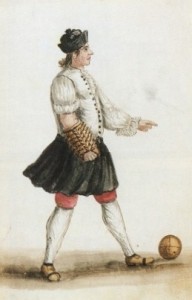 The Football Scholars Forum — an online community of scholars that discusses serious fútbol scholarship — convenes on Wednesday, November 9, at 2pm EST (-5 GMT) for a session on “Soccer in the Classroom.”
The Football Scholars Forum — an online community of scholars that discusses serious fútbol scholarship — convenes on Wednesday, November 9, at 2pm EST (-5 GMT) for a session on “Soccer in the Classroom.”
Several scholars will make short presentations about university football courses in various disciplines in the humanities and social sciences. Course syllabi have been pre-circulated on the website.
Among the questions to be discussed: How can teaching a course or unit on soccer expand or contribute to disciplinary knowledge? What are the challenges and opportunities of teaching a fútbol class filled with everyone from fantasy soccer geeks to soccer neophytes? How can students apply what they learn in a football course outside the classroom? Interested participants can join the conversation via Skype by contacting Alex Galarza.
In related news, FSF is to be featured in a poster session at HASTAC 2011, a conference on digital scholarly communication at the University of Michigan in December.
Fútbol and Politics in Chile
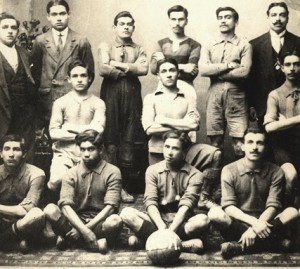 The Football Scholars Forum launches its 2011-12 season this Friday (Sept. 23, 3pm EDT) with Brenda Elsey’s new book Citizens and Sportsmen: Fútbol and Politics in Twentieth-Century Chile (University of Texas Press, 2011). It’s a fresh look at life in twentieth-century Chile through an exploration of how fútbol clubs integrated working-class men into urban politics, connected them to parties, and served as venues of political critique. You can join the conversation online via Skype. For more information visit the FSF website.
The Football Scholars Forum launches its 2011-12 season this Friday (Sept. 23, 3pm EDT) with Brenda Elsey’s new book Citizens and Sportsmen: Fútbol and Politics in Twentieth-Century Chile (University of Texas Press, 2011). It’s a fresh look at life in twentieth-century Chile through an exploration of how fútbol clubs integrated working-class men into urban politics, connected them to parties, and served as venues of political critique. You can join the conversation online via Skype. For more information visit the FSF website.